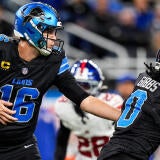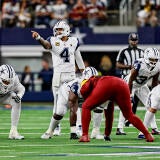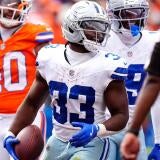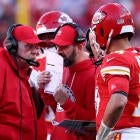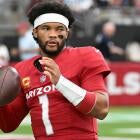Agent's Take: Sizing up Stephon Gilmore, Xavien Howard situations, with solutions for the disgruntled corners
Here's how things could play out for the AFC East's pair of unhappy star cornerbacks
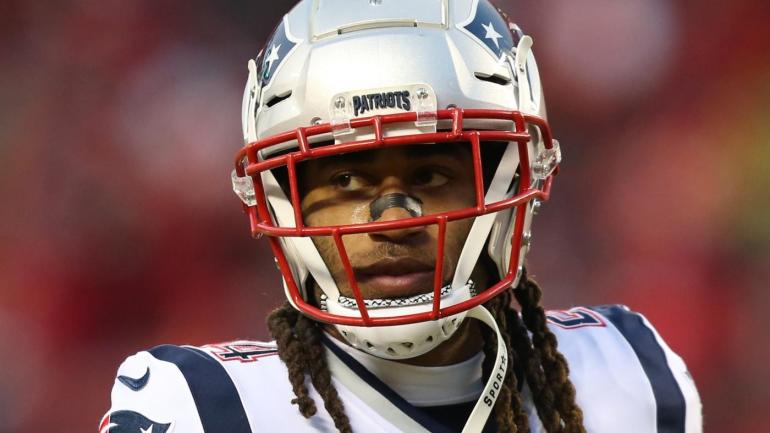
AFC East cornerbacks Stephon Gilmore and Xavien Howard subjected themselves to $93,085 fines by the Patriots and Dolphins for skipping last month's mandatory minicamp. Both players are unhappy with their contracts. The absences could extend to training camp unless their contracts are adequately addressed by their respective teams.
The fines are much more severe in training camp. NFL teams are required to fine players like Gilmore and Howard, who aren't on rookie contracts, $50,000 per day for training camp absences. The Dolphins and Patriots report to training camp on July 25.
An additional penalty would apply to Gilmore because he was an unrestricted free agent when he joined the Patriots in 2017 on a five-year, $65 million contract. Players that sign contracts as unrestricted free agents are also fined one week's base salary (1/18th of salary) for each preseason game missed. This would be $388,889 every contest, totaling $1,166,667 for the entire preseason schedule since Gilmore's 2021 base salary is $7 million. None of the training camp fines can be reduced or waived.
The extra sanction isn't applicable to Howard. He was in the final year of his rookie deal when the Dolphins made him the NFL's highest paid cornerback at the time with a five-year, $75.25 million contract extension.
Stephon Gilmore's situation
The Patriots agreed to adjust Gilmore's 2020 salary last September right before the start of the regular season. He was outperforming his contract after being named 2019's NFL Defensive Player of the Year (DPOY).
Gilmore's base salary was raised by $2.5 million. Also, $2.5 million in per game roster bonuses ($156,250 for each game on the active roster) were added to his 2020 compensation and a $2 million incentive for winning the NFL DPOY was inserted into his contract. His 2021 base salary decreased from $11.5 million to $7 million in the process. A $411,765 roster bonus contingent on a 17th game being played and Gilmore remaining on the 90-man roster for that game was also added to his 2021 compensation. The $500,000 of game day active roster bonuses in 2021 from his original Patriots contract remained.
Playing the 2021 season under this reduced compensation of $7,911,765 was always going to be problematic for Gilmore since he feels underpaid. Gilmore discussed his contract situation with NFL insider Josina Anderson recently. He said, "I just want what I'm worth, however that plays out." When asked about the partially torn quad that landed him injured reserve for 2020's final two games and required offseason surgery, Gilmore added, "We'll see (if I'm ready for camp); if I need to be. But I also don't want to push it." Gilmore also told Anderson he isn't looking to be traded.
Multiple sources have reported there hasn't been any recent progress made between Gilmore and the Patriots. According to NFL Network's Mike Giardi, Gilmore is open to a contract extension or an increase to his 2021 salary.
A solution for Gilmore
Gilmore, who turns 31 in September, might be satisfied with the type of deal the Eagles gave cornerback Darius Slay in March 2020 when acquiring him from the Lions for 2020 third and fifth round picks. Slay, who was 29 at the time, signed a three-year, $50.05 million extension with $30.05 million in guarantees. At $16,683,333 per year, Slay is the NFL's fourth highest paid cornerback.
Signing Gilmore to an extension given his age would be a departure from the "Patriot Way." Under long-time head coach Bill Belichick, the "Patriot Way" has been to get rid of a player a year too early rather than a year too late whether it's because of salary, performance or age. This philosophy dates back to early in Belichick's New England tenure when four-time Pro Bowl safety Lawyer Milloy was released a few days before the start of the 2003 regular season because he refused to take a pay cut. Losing Milloy didn't prevent the Patriots from winning the Super Bowl that season.
The Patriots have good reason for reluctance to be tied to Gilmore when he is approaching his mid-30s. Over the last 10 years, the only cornerbacks to be selected to the Pro Bowl on the original ballot after turning 32 are Hall of Famers Champ Bailey and Charles Woodson. Bailey made the Pro Bowl in 2011 and 2012 as a 33 and 34 year old. At 35, Woodson earned a Pro Bowl berth in 2011 and was named first team All-Pro when he tied for the NFL lead with seven interceptions. He played primarily in the slot that season and moved to safety the following year.
The Patriots might be more interested in putting not-likely-to-be-earned incentives in Gilmore's contract like they did with Tom Brady in 2018 and Rob Gronkowski in both 2017 and 2018. Any incentive based on what was achieved statistically during the previous season is considered likely to be earned and counts against the salary cap while anything that wasn't achieved in the previous season doesn't count towards the salary cap and is classified as not likely to be earned.
During the 2018 preseason, $5 million of incentives were added to Brady's contract. Brady had a laundry list of performance milestones primarily based on being in the top five in various statistical categories where he earned $1 million for each of the first five that were met, provided his offensive playtime during the regular season was at least 70 percent and he threw a minimum of 224 passes. He didn't earn any of his incentives.
The Patriots finally addressed Gronkowski's perpetual unhappiness with the six year, $54 million extension he signed in 2012 to become the NFL's highest paid tight end by average yearly salary in 2017. Incentives of $5.5 million were added to Gronkowski's 2017 contract year. He earned the entire amount when he was named first team All-Pro by the Associated Press.
The Patriots went with another 'Band-Aid" approach of $3.3 million incentives for 2018 rather than give Gronkowski the new deal he desired. Gronkowski's incentive thresholds were just above his 2017 performance (80% offensive playtime, 70 catches, 1,085 receiving yards and nine touchdown receptions) to qualify as not likely to be earned. Each of the first three of these individual achievements met were worth $1.1 million apiece. Missing three games because of ankle and back problems kept Gronkowski from earning any of the incentives.
Going the incentive route shouldn't interest Gilmore without more realistically achievable thresholds than Brady and Gronkowski had. Since Gilmore only had one interception for 15 yards and was on the field for 62.2 percent of New England's defensive plays in 2020, anything above these marks would be considered not likely to be earned for incentive purposes.
The fines make a lengthy holdout an expensive proposition if there isn't a resolution before training camp starts. Gilmore's quad injury could give him cover for a "hold in" where he reports to training camp to avoid fines and doesn't participate in practices because he isn't "100 percent" until the sides find common ground.
Xavien Howard's situation
Howard's situation is more difficult than Gilmore's. Part of the problem is he barely moved the needle for a stagnant cornerback market when he signed his extension in 2019 averaging $15.05 million per year to top Josh Norman's $15 million per year from the 2016 deal Norman signed with the Washington Football Team.
The Dolphins didn't do themselves any favors by paying Byron Jones, an inferior cornerback, more than Howard in free agency last year. Jones briefly became the NFL's highest paid at the position with a five-year, $82.5 million contract averaging $16.5 million per year. The deal contains $54.375 million of guarantees where $40 million was fully guaranteed at signing. Compounding the problem is the cornerback market continued to escalate in 2020 with Jalen Ramsey ($20 million per year), Marlon Humphrey ($19.5 million per year) and Tre'Davious White's ($17.25 million per year) contracts.
Howard was arguably the game's best cornerback last season when he led the NFL with 10 interceptions. He was the first player to have 10 interceptions in a season since Antonio Cromartie in 2007. Howard's 10 interceptions in 2020 were six more than Jones has had in his entire six-year NFL career. 2020 was also the second time in Howard's career he was tops in interceptions. The seven passes he picked off in 2018 were tied for the league's most.
A solution for Howard
Howard has four years remaining on his contract worth $49.325 million. The Dolphins probably have no interest in setting a new precedent by giving Howard a new deal when there is so much time remaining on his existing contract. Having to do the same for other players is the typical justification teams give about establishing precedents when distinctions should be able to be easily made based on each player's particular circumstances.
Teams don't renegotiate long term contracts in a meaningful way after playing just one of the new years. It's a rarity with three years remaining.
Howard's case is most analogous to wide receiver Stefon Diggs' last year. He had four years remaining on his five-year extension when the Bills tweaked his contract during the early part of training camp after acquiring him from the Vikings in an offseason trade
Diggs' 2020 compensation increased by $3.3 million from $11.4 million to $14.7 million. $1.8 million of the $3.3 million was a signing bonus when his contract was modified. His 2021, 2022 and 2023 compensation decreased by $316,666, $1.425 million and $1.45 million, respectively. Diggs' 2021 salary guarantees increased by $7.7 million in the process. There was also a slight modification to the base salary escalators already in the contract.
Should Howard, who is 28, find the concept of advancing money from future years unacceptable or there's an unwillingness by the Dolphins, a trade wouldn't be surprising. Miami would surely want at least a first round pick in return for Howard. The Jaguars dealt an unhappy Ramsey to the Rams during the middle of the 2019 season for a 2020 first round pick, a 2021 first round pick and a 2021 fourth round pick. The Seahawks gave 2021 and 2022 first round picks, a 2021 third round pick and safety Bradley McDougald to the Jets last July to acquire safety Jamal Adams and a 2022 fourth round pick.
Sometimes, a change of scenery will temporarily satisfy a disgruntled player. That was the case with Ramsey. He didn't a make new contract a condition of a trade. Ramsey could afford to be patient because 2020 was his contract year. An acquiring team would likely be inheriting Miami's problems with Howard unless his contract is addressed before the start of the 2022 season at the latest.

